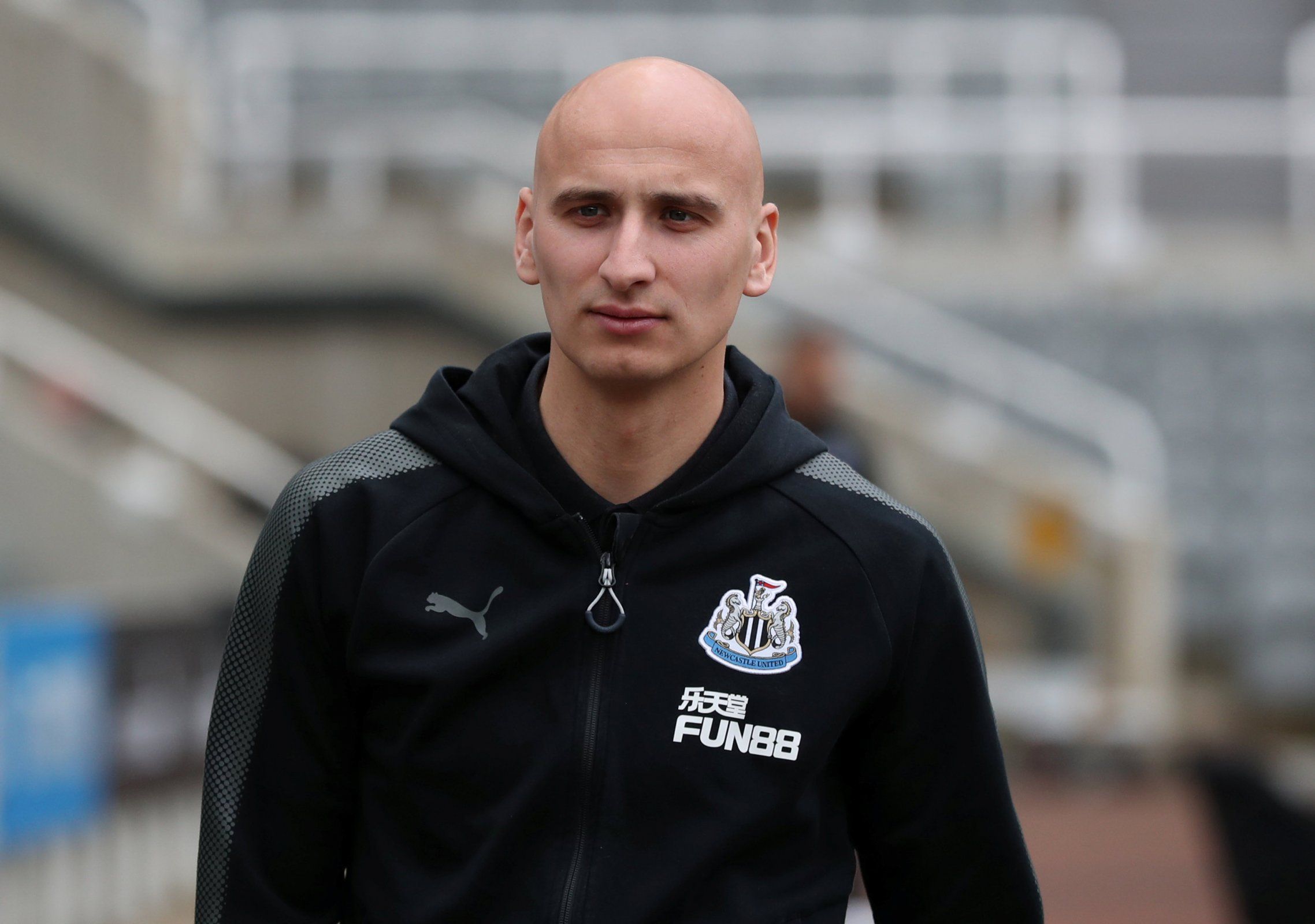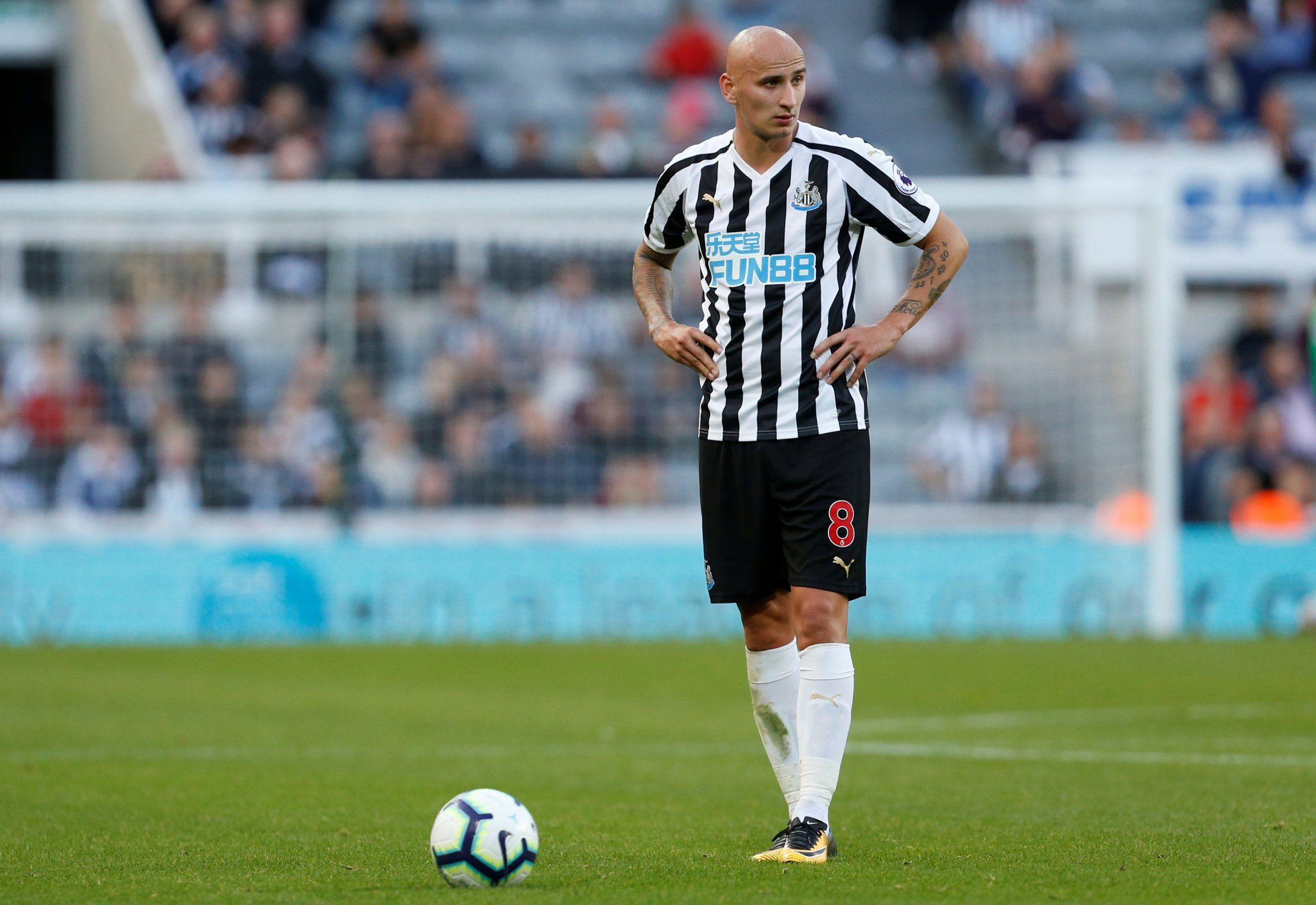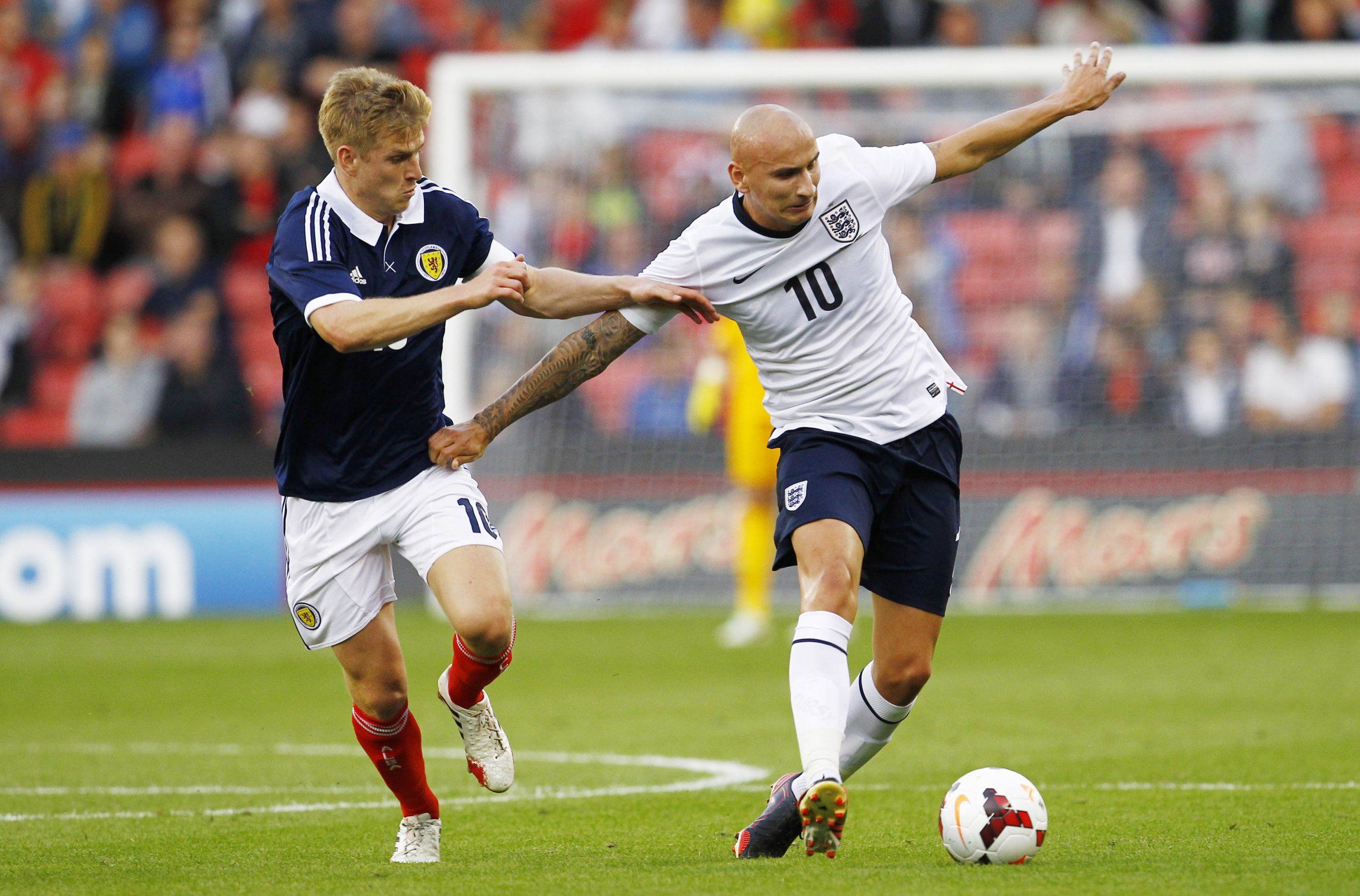Managers rate some players over others and that’s just how it goes. To have a problem with that is to have a problem with the democratic principles at the heart of football that decrees that one highly pressurised man who prowls technical areas on a weekly basis lives or dies by his decisions and so is rightly free to make them unreservedly.
The sword of Damocles dangles above him after all, not us, and more so he is the expert with coaching badges aplenty while we play FM18 in our pants and eat lots of cereal.
That doesn’t mean we should blindly accept these decisions, especially when a suspicion lingers that it is not solely the player’s attributes or otherwise on a pitch that is being merited. Because if any other yardstick is used to measure that means, the fundamental principle at the heart of that selection process is broken. That means it’s personal.
In 2015, Jonjo Shelvey turned down the chance to participate in the U21 Euros after being selected by the manager at the time, Gareth Southgate. In the aftermath of this minor scandal it was widely insinuated that the midfielder was reluctant to drop back down to that level after being capped at senior level, and his slight on Southgate and the Young Lions was duly filed away, to go with his other misdemeanours that had him marked down as a bad apple.
Shelvey clearly had an ‘attitude’ and it was this attitude that led to Swansea boss Garry Monk calling out his player for having a woeful disciplinary record with an abundance of yellows cards accrued through ‘laziness.’
‘Was’ and ‘had’ are the operative words here because in the interim, the Romford-born schemer has cleaned up his act. He’s matured, developing into an integral figure at St. James' Park following his move to Newcastle at the start of 2016. The unnecessary bookings have become a thing of the past; distractions away from the game have been successfully compartmentalised, and Shelvey has now coupled together over two years of largely unblemished excellence. On his day his passing purrs, venturing down lanes and pathways not usually explored by others. That opens up defences. That is priceless.
So why was it then that several months prior to last summer’s World Cup, the feeling in the north-east was that Jonjo Shelvey could produce one masterclass after another and still not come close to making Gareth Southgate’s final 23? Simply put, it’s because we all knew he wasn’t being judged on merit. He was being judged on his past. It was personal.
This nagging doubt only intensified when the England coach was pushed on his omission, stating that he had chosen players who were ‘better’ than the 26-year-old. For a straight-shooter like Southgate, this came across as an uncharacteristic low blow and one that was exacerbated when talk of ‘character’ sprinkled his subsequent sentences. Was this fair? No, it was not, and frankly it was a little out of line given that we can assume Southgate was by now not only aware of the player’s transformation second-hand, but through the advocacy of Rafa Benitez, a man whose moral compass is steadier even than his.
Shelvey for his part, and to his credit, stayed schtum.
Fast-forward to the World Cup and the Three Lions may well have far exceeded expectations, but one expectation that was certainly met was their toiling in central areas. The talk before the tournament was that England was devoid of a touch of class in midfield, lacking a player who could be the difference-maker and open up stubborn rear-guards: a player exactly like Shelvey. That duly came to pass.
It would be entirely understandable if the Newcastle star has now given up on his dream of ever appearing in an England jersey again. The two subsequent squads Southgate has compiled since the summer have on both occasions overlooked him and this time his place has been taken by Tottenham’s Harry Winks, an inferior talent who has made just two starts so far this season.
Furthermore, Southgate’s reputation is in the ascendancy, signalling that he’s not going anywhere anytime soon and last week the popular gaffer signed an extension to his contact that keeps him in charge until 2022. Lastly, but by no means least, on the horizon looms the emergence of Phil Foden, who will surely nail down the instrumental-midfielder role for a decade to come.
How much Shelvey regrets the decision he took three years ago will presumably always remain private but if he does seek counsel on his frustrations towards Southgate, it could well be with his team-mate Jamaal Lascelles. Because in a bizarre twist it is not just Newcastle’s midfielder who has become persona non grata with England, but the club’s centre-back and captain too.
At least in the case of Lascelles there is the caveat of the national side being fairly well stocked with competitive rivals for a spot, even if that does mean sometimes turning to the dubious charms of United’s Chris Smalling and Phil Jones. Balancing that out, however, is the astounding fact that a 24-year-old skipper of a Premier League team – who was individually outstanding for much of 2017/18 after having hauled his side to promotion the previous year – has yet to even receive a single cap for his country. Lascelles hasn’t become a persona non grata: he was never a person of interest to begin with.
Quite why these two sterling talents continue to be snubbed internationally remains a mystery, but with Winks and Brighton’s Lewis Dunk being selected ahead of them this week – and this after Burnley’s James Tarkowski pulled out through injury – it is safe to assume that for the short to long term future, Newcastle will be blessed with a duo of players who England could greatly benefit from, but won’t through choice.
[brid autoplay="true" video="306215" player="12034" title="Watch Fixture in Focus Croatia v England"]



